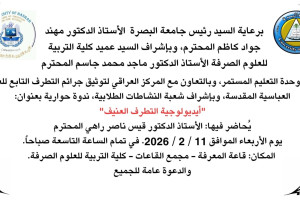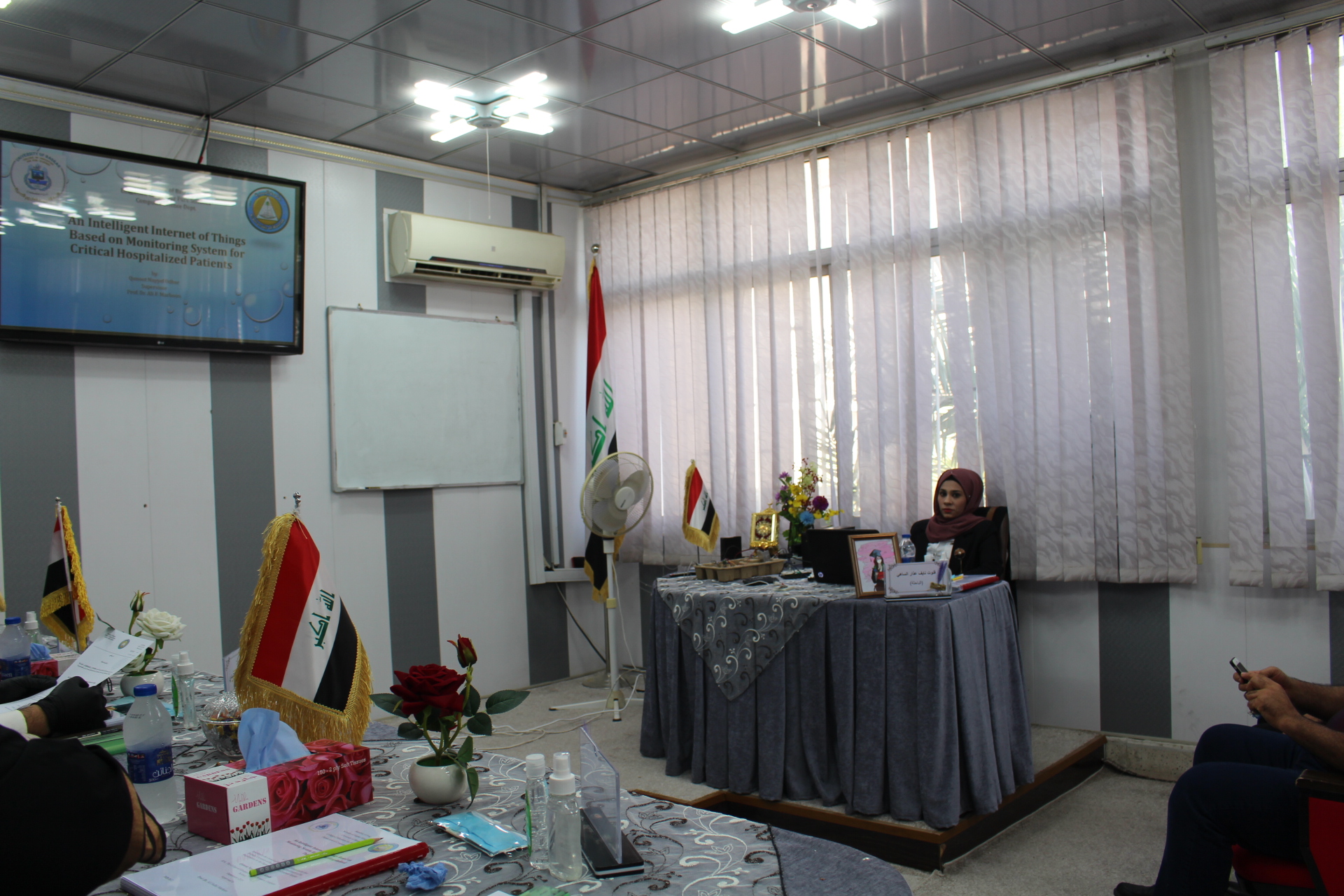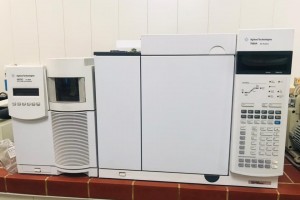
The College of Education and Pure Sciences in the Department of Computer Science at Basra University discussed a master's thesis entitled (An Intelligent Internet of Things Based on Monitoring System for Critical Hospitalized Patients). The thesis presented by the researcher (Qunoot Nayyef Odhar) included designing and implements an smart system to monitor and follow up the health conditions of critical hosptalized patients to overcome the traditional healthcare systems and the methods that used in developing countries such as Iraq, where the proposed system provides the ability to remotely monitor and track the health conditions of patients and access data from anywhere and anytime. Where the proposed Healthcare system consists of three subsystems, which are the subsystem of the patient's node, which is responsible for the patient's side, which collects vital data from the patient's body and analyzes it, and then classifies it as a normal or abnormal condition, in an abnormal case the doctor is alerted by ringing his mobile phone and sending a message containing the values of these data, in addition to uploading the data to the Base-station to store this case under the date and time of its occurrence, with the possibility of receiving notification about the patient's health conditions by the responsible doctor. While the second subsystem represents the Base-station that acts as the main server of the system , which is responsible for storing data, organizing patients and users within the system. While the third subsystem is to design a web application for the end user, which provides simple and easy interfaces for different users in order to access information and display abnormal medical data clearly and explicitly. The thesis aims to develop the existing healthcare system in Iraq and make it smarter by providing more facilities and solutions represented by providing the opportunity for doctors to follow the health conditions of their patients at any time and anywhere without needs to visit the hospitals and health centers by providing a small, inexpensive and safe way. To monitor health conditions and support emergencies through a real-time monitoring system and use telemedicine techniques based on Internet of Things technology. Thesis recommended Adopting smart surveillance systems and telemedicine technologies in health centers and hospitals because of their Importance in early detection of the disease and because of its an important role in a monitoring patients infected with COVID-19 Which requires monitoring and following-up the patients without direct contact with them to avoid the risk of infection.








